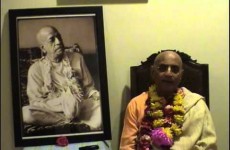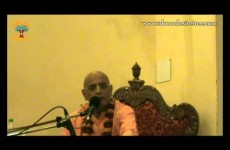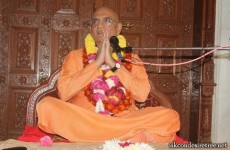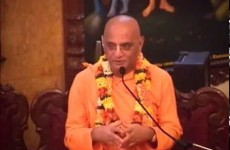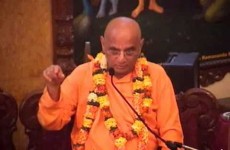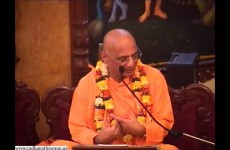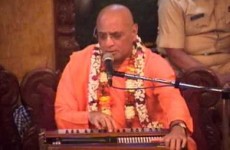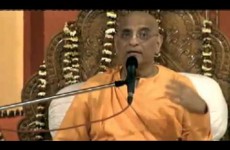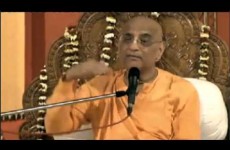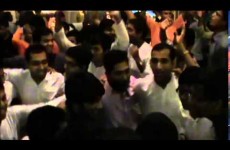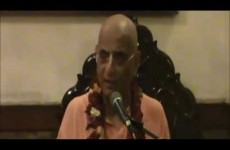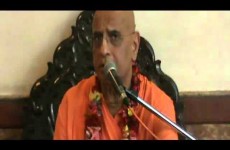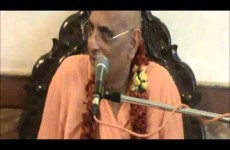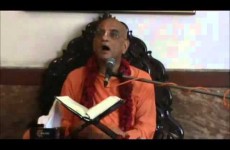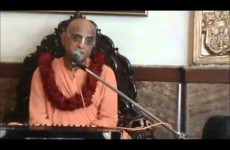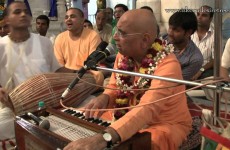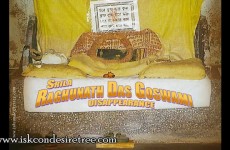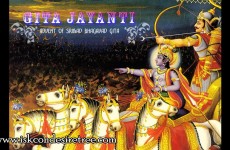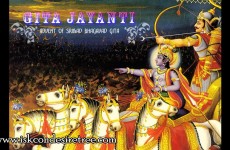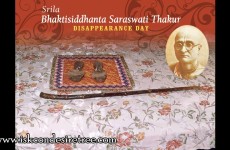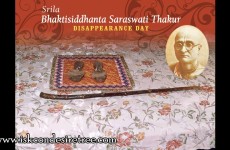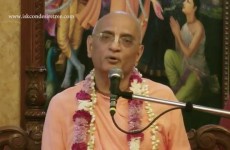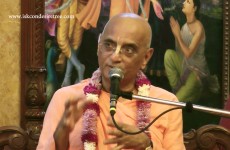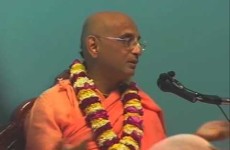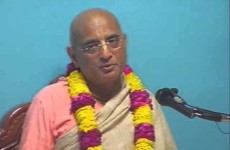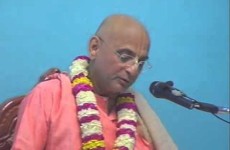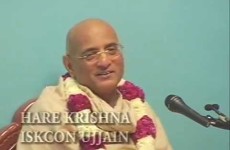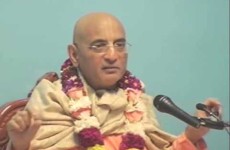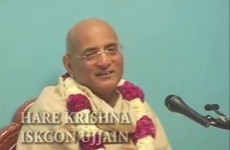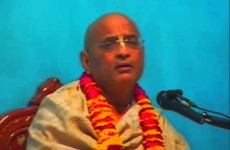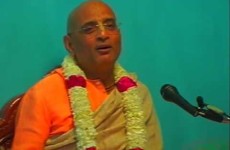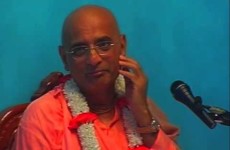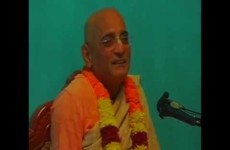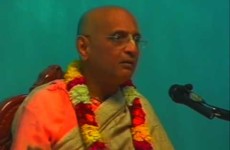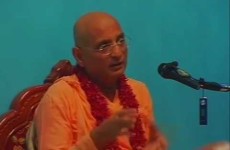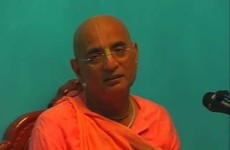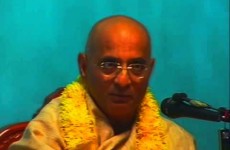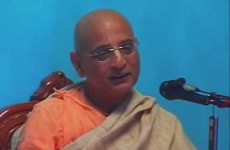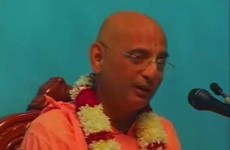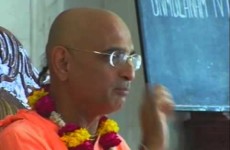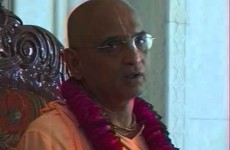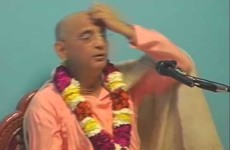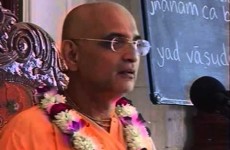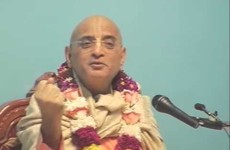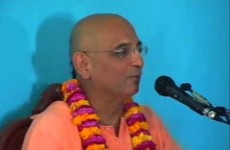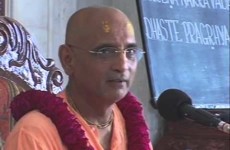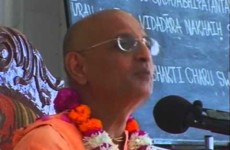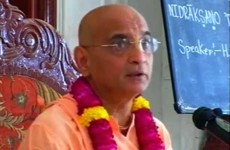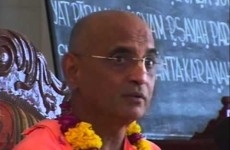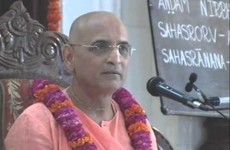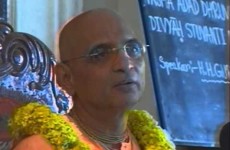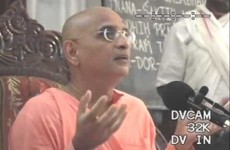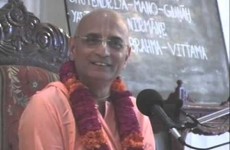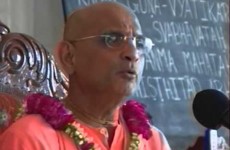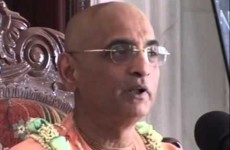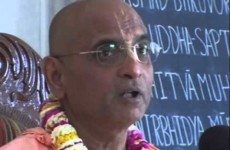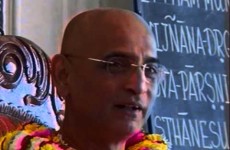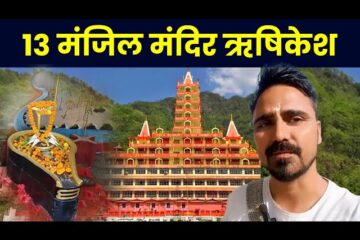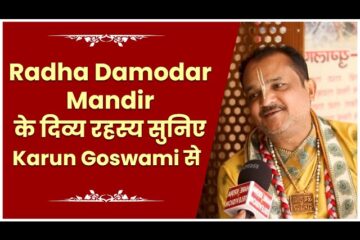SB 4.12.31
tada dundubhayo nedur
mrdanga-panavadayah
gandharva-mukhyah prajaguh
petuh kusuma-vrstayah
Translation by His Divine Grace A. C. Bhaktivedanta Swami Srila Prabhupada:
At that time drums and kettledrums resounded from the sky, the chief Gandharvas began to sing, and other demigods showered flowers like torrents of rain upon Dhruva Maharaja.
SB 4.12.32
sa ca svarlokam aroksyan
sunitim jananim dhruvah
anvasmarad agam hitva
dinam yasye tri-vistapam
Translation by His Divine Grace A. C. Bhaktivedanta Swami Srila Prabhupada:
Dhruva was seated in the transcendental airplane, which was just about to start, when he remembered his poor mother, Suniti. He thought to himself, “How shall I go alone to the Vaikuntha planet and leave behind my poor mother?”
Purport by His Divine Grace A. C. Bhaktivedanta Swami Srila Prabhupada:
Dhruva had a feeling of obligation to his mother, Suniti. It was Suniti who had given him the clue which had now enabled him to be personally carried to the Vaikuntha planet by the associates of Lord Visnu. He now remembered her and wanted to take her with him. Actually, Dhruva Maharaja’s mother, Suniti, was his patha-pradarsaka-guru. Patha-pradarsaka-guru means “the guru, or the spiritual master, who shows the way.” Such a guru is sometimes called siksa-guru. Although Narada Muni was his diksa-guru (initiating spiritual master), Suniti, his mother, was the first who gave him instruction on how to achieve the favor of the Supreme Personality of Godhead. It is the duty of the siksa-guru or diksa-guru to instruct the disciple in the right way, and it depends on the disciple to execute the process. According to sastric injunctions, there is no difference between siksa-guru and diksa-guru, and generally the siksa-guru later on becomes the diksa-guru. Suniti, however, being a woman, and specifically his mother, could not become Dhruva Maharaja’s diksa-guru. Still, he was not less obliged to Suniti. There was no question of carrying Narada Muni to Vaikunthaloka, but Dhruva Maharaja thought of his mother.
Whatever plan the Supreme Personality of Godhead contemplates immediately fructifies. Similarly, a devotee who is completely dependent on the Supreme Lord can also fulfill his wishes by the grace of the Lord. The Lord fulfills His wishes independently, but a devotee fulfills his wishes simply by being dependent on the Supreme Personality of Godhead. Therefore as soon as Dhruva Maharaja thought of his poor mother, he was assured by the associates of Visnu that Suniti was also going to Vaikunthaloka, in another plane. Dhruva Maharaja had thought that he was going alone to Vaikunthaloka, leaving behind his mother, which was not very auspicious because people would criticize him for going alone to Vaikunthaloka and not carrying with him Suniti, who had given him so much. But Dhruva also considered that he was not personally the Supreme. Therefore, only if Krsna fulfilled his desires would it be possible. Krsna could immediately understand his mind, and He told Dhruva that his mother was also going with him. This incident proves that a pure devotee like Dhruva Maharaja can fulfill all his desires; by the grace of the Lord, he becomes exactly like the Lord, and thus whenever he thinks of anything, his wish is immediately fulfilled.
[To hear more on this verse, visit – http://www.srimadbhagavatamclass.com/category/srimad-bhagavatam-canto-04-the-creation-of-the-fourth-order/chapter-12-dhruva-maharaja-goes-back-to-godhead/]











